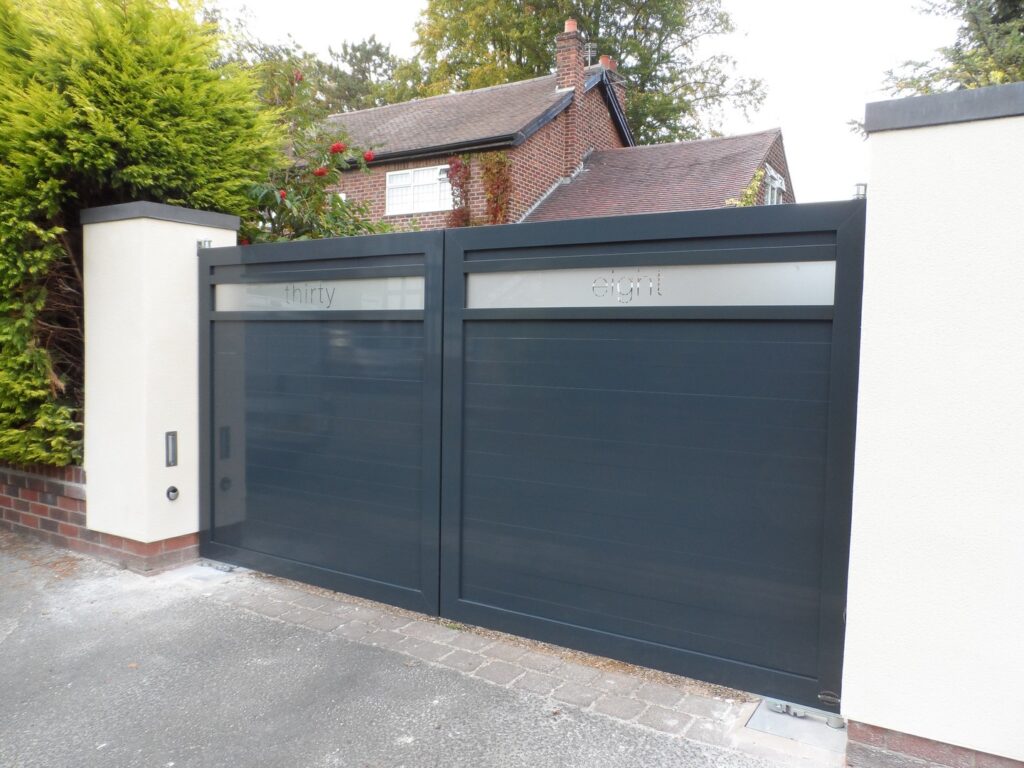What Can Go Wrong With Electric Gates?
Electric gate issues may not be common, but certain circumstances can increase their likelihood. Here’s a guide to common problems with electric gates and how to prevent them.
Electric gates consist of various components assembled into a bespoke system. Some parts, like the gate automation system, are standard, while others, like wooden or iron gates, brick piers, or gate posts, are custom-made.
Although automatic driveway gates with motors may appear simple, their systems are complex. This complexity means that issues can arise, causing your electric gates to malfunction.
Regular maintenance is crucial for keeping well-designed and installed electric driveway gates in good working order. Understanding potential problems can help highlight the importance of preventative maintenance in minimising electric gate issues.
Common Causes of Gate Automation System Breakdowns
Mechanical Wear and Tear
Moving mechanical parts that endure significant forces will eventually wear out and break down. Regular servicing, including greasing moving parts and cleaning out dirt and grit, helps reduce wear. Maintenance also allows for visual inspections and testing for potential component wear, enabling the replacement of worn parts before they fail.
Electrical Issues and Electronic Component Failure
Electrical problems in automatic gate systems are often due to insects, spiders, and slugs intruding into components like safety photocells. Slugs are particularly attracted to electronic circuit boards and often get electrocuted, causing malfunctions. Spiders can spin webs inside photocell housings, blocking the infrared beams these safety devices rely on.
Power interruptions can occur if gardening or construction work damages an armoured power cable buried along the drive. Electronic components can also fail due to manufacturing defects, age, or water ingress. When electronic components fail, the gates typically stop working to prevent unsafe operation.
Regular maintenance can help detect signs of water, insect, or spider intrusion. While it’s possible to replace ageing components proactively, spontaneous failures may still occur, necessitating professional repairs.
Damage from Impact
Swing gates, acting like large levers, can suffer significant damage if force is applied at the end opposite the hinges. Pushing or pulling hard on a swing gate can damage hinges and motors, especially on longer gates.
To prevent such damage, consider installing a magnetic lock (maglock) that holds the gate ends tightly together when closed. This prevents the gates from being forced open and damaging motor components.
Flooding of Underground Gate Motors
Underground gate motors, installed in housings beneath swing gate hinges, are popular for their hidden appearance. However, without adequate drainage, these motors can flood, leading to failure. Proper installation with sufficient drainage is essential to prevent water from accumulating and submerging the motors.
Gate Remote Transmitter Issues
Remote controls for automatic gates communicate via radio signals with a receiver in the gate’s control system. Interference from other electrical devices can disrupt this signal.
Trained installers can identify and eliminate interference sources, but the process is complex and best left to professionals. If a remote fails, even obsolete models can often be replaced by programming a new transmitter with the same frequency as a working remote. If no functional remotes remain, replacing both the receiver and transmitters will solve the problem.
Poor Installation
Proper installation is critical for optimal performance and longevity of swing and sliding gates. Misalignment during installation can lead to quick wear and failure. Proper drainage is essential for underground motors, and correctly aligned components are necessary to prevent electrical and mechanical problems.
A trained installer ensures that gates are aesthetically pleasing, functional, and safely installed. While professional installation may cost more upfront, it provides long-term peace of mind and reliability.
Damage to Gates
Minor damage to gates doesn’t always stop them from working, but significant impacts can cause problems. Small collisions might only dent the gates, while larger impacts from vehicles like delivery trucks can bend or break components. Repairing such damage may require welding for iron and steel gates or replacing sections for wooden and aluminium gates. Motion-activated safety lights can help prevent nighttime collisions by illuminating the gates when a vehicle approaches.
Age-Related Issues
Electric gates exposed to the elements will eventually show signs of wear. Wooden gates can rot, and iron gates can rust if water and air penetrate protective coatings. Regular maintenance can slow these processes, but over time, gates may need replacement to maintain their appearance and functionality.
Poor Maintenance
Neglecting maintenance or performing it poorly can lead to numerous issues. Bad maintenance gives gate owners a false sense of security, believing their gates are well-maintained when they are not. Hiring experienced and recommended professionals for installation, repairs, and maintenance is essential for the longevity and safety of electric gates.
If you need assistance with a current gate issue, want to schedule maintenance to prevent future problems, or are looking to install new electric gates, contact Autogate at 01420 557 551 or email sales@autogatepsr.co.uk


